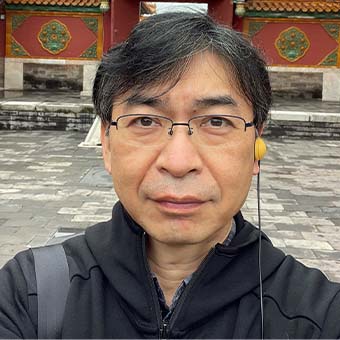
CASE Transformation: Auto Industry Shift in China
1. Background
The automobile industry is undergoing a major transformation called CASE: connected(C), autonomous driving(A), sharing(S), and electrification(E). China, being the pilot market for CASE related development, has shown remarkable growth in next-generation mobility technology in recent years.
New Energy Vehicles (EVs) are Driving the Chinese Automotive Industry
Despite COVID-19 and the impact on the supply chain due to competing foreign vendors, China remains an "automotive superpower" market. As a result, the production and sales of new energy vehicles have reached new record highs, and demand remains strong. It is estimated that the sales of domestic electric vehicles in 2025 will exceed 15 million units, with the New Energy Vehicles (NEV) penetration rate reaching over 50%.
(source: China Automobile Association)

The domestic subsidy policy for NEVs is about to enter the market demand driven stage. In 2021, the replacement of fuel for A00 class vehicles (mini cars), has been completed. In 2022, Class A and Class B mid-end passenger car models will become the mainstream of new energy vehicles.
On the other hand, the Chinese NEV subsidy policy closed in 2022, and will enter the stage driven by market needs. In the mid-to-long term, increased production of EVs, as well as reduced production of conventional fuel-powered vehicles and reduced investment in gas stations are expected to accelerate the spread of EVs.
In addition, the development and utilization of new energy will have some drawbacks, such as high consumption (long distance transport from the power plant to the center city where it is consumed), low efficiency, pollution (such as from lithium-ion batteries). Using the power grid to charge new energy vehicles will also have a certain impact on the operational stability of the urban power grid, which is likely to cause a series of problems caused by power consumption during peak periods.
2. Technology Overview
Expanding Ride-hailing Services and Self-driving Taxis
In addition to NEVs, integration of IT and automobile-related industries is also expanding in China. In large cities such as Beijing, it is common to call a car using a smartphone app and then use a cashless payment method after reaching your destination. . However, the government is strengthening its control over companys ' personal information collection methods, and using apps such as maps provided by companies like BAT (Baidu, Alibaba, Tencent), a major Internet company, and Meituan, a major delivery company.
In addition to these ride-hailing services, companies such as BAT are also focusing on achieving autonomous driving through partnerships with automobile manufacturers and starting production of self-driving cars. Also, the self-driving taxi service "Apollo Go Robo Taxi" has started offering fully driverless ride-hailing services in several cities, including Beijing.

Development of Intelligent Cockpit Technology
Autonomous driving technology development is starting to face both major challenges as well as rapid technological innovation. Restricted by technical maturity, commercialization and other issues, the intelligence of a single car cannot go beyond level 3 ("Conditional automated driving," in which the system performs all driving tasks, but the driver must respond to system intervention requests, etc.). Due to the complexity of driving scenarios, even though the existing technology has achieved automatic driving in more than 90% of driving situations, the remaining 10% of long tail scenes are difficult to solve. As a result, OEM began to work hard on mileage testing, and the ability to obtain data. Perfecting iteration algorithms also became the core area for market competition in order to improve automatic driving technology and enhance commercial applications.
One example would be the development of the intelligent cockpit. The intelligent cockpit can directly interact with the car owners, whether it is on the display screen or in interaction mode, which can be directly seen by consumers. As car buyers are becoming younger and younger, the intelligence level of the cockpit has basically become the primary deciding factor for car purchases. At the time when OEMs are actively making efforts to develop smart cabins, internet companies and emerging technology-based firms are actively joining in on the game, accelerating the rapid development of the field of smart cabins. These players have considerable advantages in technology, software content ecology and other aspects, which can make up for the deficiencies of OEM.
3. NTT DATA Group's Global Initiatives
Global Initiatives for the Automotive Industry
Based on 50 years of business experience with global automotive companies and suppliers, including Cirquent, a German automotive information system subsidiary acquired from BMW in 2008, NTT DATA Group has responded to the changing automotive market, including CASE and smart factory innovation. Recently NTT DATA, Valeo, and Embotech have formed a consortium called VEN.AI with the aim of developing and globally deploying automated valet parking (AVP) solutions.
Press Release: (NTT DATA, Valeo and Embotech Form Consortium to Provide Automated Parking Solutions)
Video: (VEN.AI)

Also, as an important player in the market, NTT DATA China has a long-term partnership with top brand OEMs in China, including BMW, VW, Mercedes-Benz, and Geely, including R&D, manufacturing, sales and aftersales. Recently, NTT DATA China is also investing more into building up the inCar & Connectivity CoE, and Big Data CoE to focus on AD/ADAS validation & verification, intelligent cockpit development, and connected car data monetization. NTT DATA China is also working on the development of intelligent cockpits, including in-vehicle apps, the development of connected mobile apps that work with vehicle devices and consumers, and the analysis of external data. Especially in China, as there is a large demand for in-vehicle entertainment among younger car buyers, NTT DATA has developed a mobile app to integrate a vehicle's headlights with the music played on a mobile app.

In the future, NTT DATA will leverage its experience in collecting and utilizing customer data, connected car data, and various external environment data to expand its business into the mobility field and EV services.
Rikuichi Niikawa
Chief Economist
NTT DATA China
Zhenbo Luo
InCar & Connected CoE head
NTT DATA China
Shinsuke Yoshinaga
Global Automotive
NTT DATA Group



